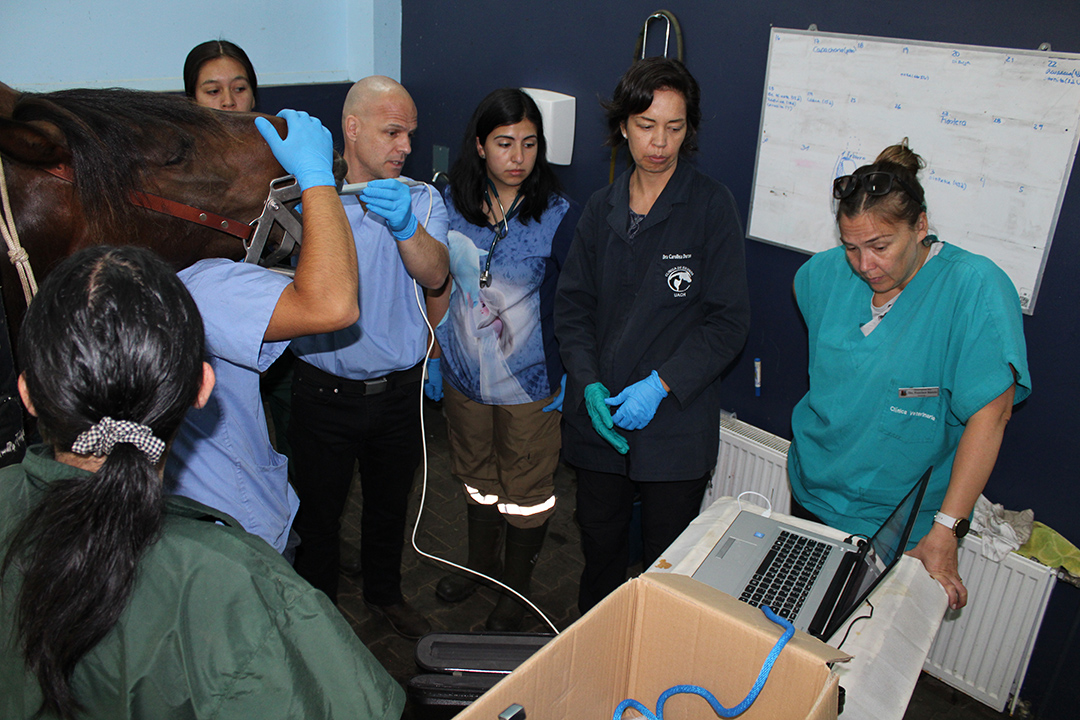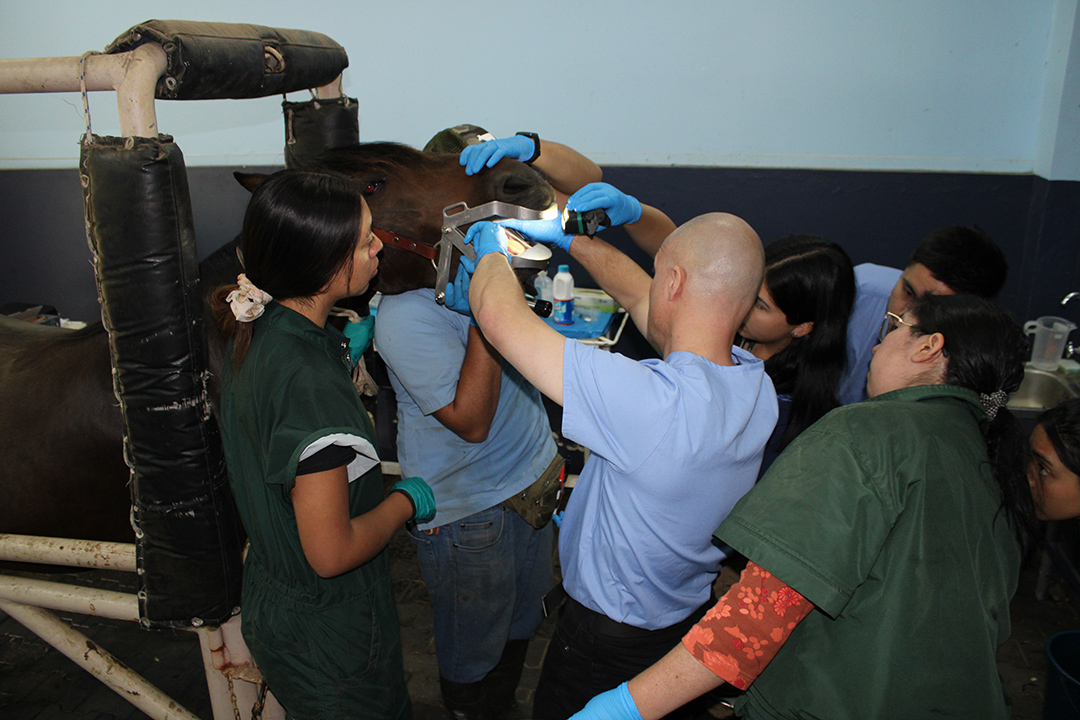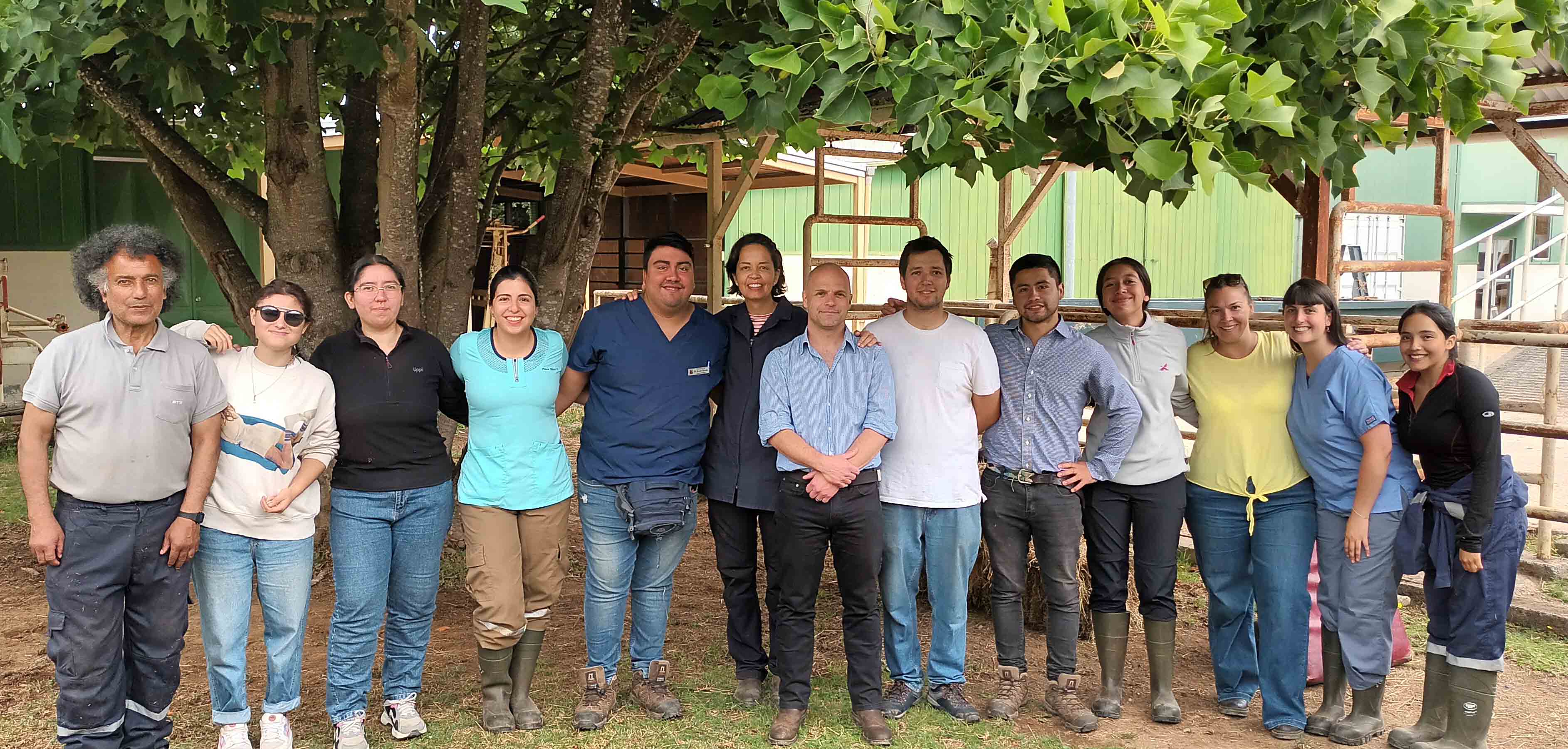
Veterinarians trade horse expertise through Global Ambassador program
A University of Saskatchewan (USask) program that fosters collaboration between educators around the world helped to transport large animal surgical specialist Dr. James Carmalt to South America for two weeks in January 2023.
By Jessica Colby
Carmalt was a guest lecturer and clinician at the Universidad Austral de Chile in Valdivia, a city located about 850 kilometres south of Santiago, Chile. His trip was part of the USask Global Ambassador program that provides financial support for the university’s faculty and staff to travel to international universities and other facilities aligned with areas of strength at USask.
Carmalt lectured at the Universidad Austral de Chile’s veterinary school and provided continuing education courses in his specialty, which includes temporomandibular joint (TMJ) disorders, the larynx and surgery of the head and neck — particularly the sinuses — in horses.
“I was lecturing to students, and I did two days of continuing education with two or three wet labs as well,” says Carmalt, a professor and large animal surgical specialist at the Western College of Veterinary Medicine (WCVM).
“There is the opportunity to come down more frequently … and do more continuing education for local veterinarians as well, they do a fantastic job.”
While planning his trip to Valdivia, Carmalt worked with Dr. Carolina Durán, who studied at the WCVM from 2013 to 2016. Durán completed a residency in large animal internal medicine and a Master of Veterinary Science degree at the WCVM, followed by board certification with the American College of Veterinary Internal Medicine.
She’s now a faculty member who practises in the equine clinic at Universidad Austral de Chile’s veterinary hospital — a smaller version of the WCVM’s Veterinary Medical Centre, according to Durán.
“We always got along very well when I was doing my residency,” says Durán of Carmalt. “I called him because I was looking for a specific treatment that we needed, and I couldn’t find the ‘recipe’ for it.”

Carmalt mentioned the university’s Global Ambassador program to Durán during their conversation and she proposed the idea of him coming to visit Chile. The COVID-19 pandemic delayed their plans for a couple of years, but the trip finally went ahead this year.
The program provides up to $5,000 in support for USask faculty members to support new or existing collaborative relationships with global institutions.
“It’s really a multi-faceted approach to foster ties between faculty members at the different institutions, to develop new graduate student streams potentially, [and] to facilitate movement of undergraduate students between the two universities,” says Carmalt.
“The academic aspect is to improve collaboration between both universities, so that undergraduate and graduate students can come to Chile or go to Canada,” adds Durán.
Since Chile has fewer veterinarians specializing in large animal surgery, Durán says it’s quite common for visiting specialists like Carmalt to come and provide continuing education for local veterinarians.
“I looked at clinical cases sent in by clients because they don’t have a surgeon here. I [did] equine surgery for them,” says Carmalt, who was able to share skills and techniques for some surgical procedures that his Chilean colleagues don’t normally perform.
“I wanted to come and teach the faculty members here how to do the surgery, but [to] also do the surgery myself,” says Carmalt, adding that he loves travelling. “This is an opportunity to tie travel in with work.”
During his time in South America, Carmalt primarily worked on Chilean horses — a breed of prized cow horse and the only breed used in Chilean rodeo — and Arabians. As he worked alongside the veterinary school’s clinicians and local veterinarians, he also picked up some valuable tips to bring back to Canada.
“I can learn from different vets in different countries — how they adapt and how they do the procedure with less,” says Carmalt. “And I can bring that knowledge with me here [to Saskatoon].”
In Chile, Durán emphasizes that it is not only important to be “prepared for plan A, but also having an option to work with plan B, C and D.”
In turn, Carmalt was able to share his clinical knowledge from his education and “great training” at USask.
“Everybody was super happy with Dr. Carmalt being here,” says Durán. “He was also pleased to see all the interest and how everybody wanted to learn a little bit more.”
Durán says that international professors like Carmalt who visit Chile also help to generate new ideas and future collaborative research projects with Chile.
“Getting the experience of knowing different people in your field helps you to have more eyes on the same problem, which gives you more chances to actually fix it or find a solution,” says Durán. “I think collaboration is the key for success.”
